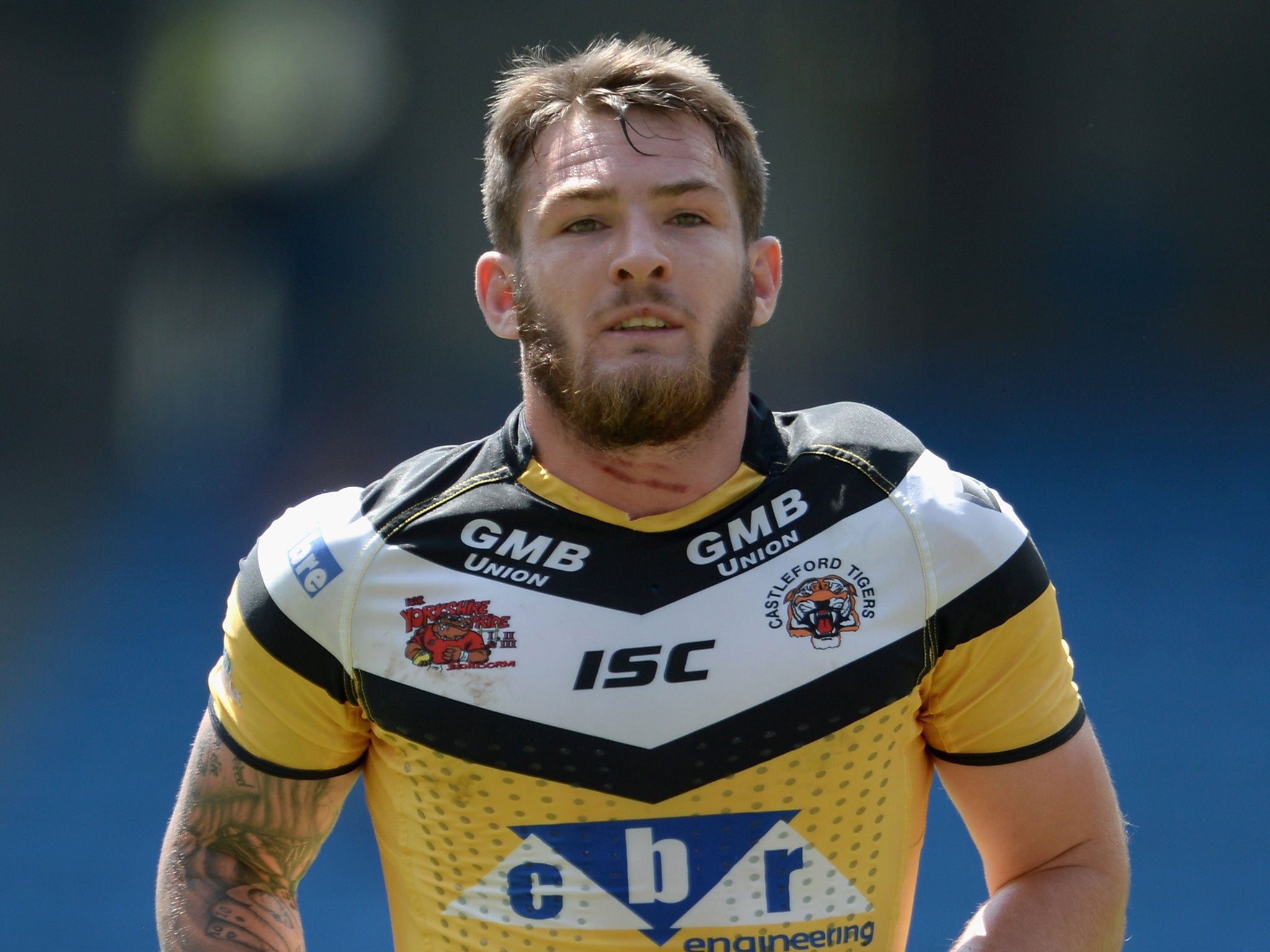Daryl Clark inspired by Castleford's Challenge Cup history even as tradition points to a future elsewhere
Castleford hooker prepares for the Challenge Cup final against Leeds this weekend

Your support helps us to tell the story
From reproductive rights to climate change to Big Tech, The Independent is on the ground when the story is developing. Whether it's investigating the financials of Elon Musk's pro-Trump PAC or producing our latest documentary, 'The A Word', which shines a light on the American women fighting for reproductive rights, we know how important it is to parse out the facts from the messaging.
At such a critical moment in US history, we need reporters on the ground. Your donation allows us to keep sending journalists to speak to both sides of the story.
The Independent is trusted by Americans across the entire political spectrum. And unlike many other quality news outlets, we choose not to lock Americans out of our reporting and analysis with paywalls. We believe quality journalism should be available to everyone, paid for by those who can afford it.
Your support makes all the difference.For a mere youth of 20, Daryl Clark carries an awful lot of history and tradition on his shoulders in the Challenge Cup final on Saturday.
Clark will not only be Castleford’s hooker against Leeds, he will also be one of their most potent attacking threats at Wembley in what is likely to be one of his last games for his hometown club.
A couple of years ago Clark was still playing for the amateur side Fryston. On Saturday, many of his former team-mates, as well as his family, will be there to see him lock horns with the Rhinos.
“A lot has happened in a short time,” he says. “To be playing at Wembley at this stage of my career is a dream. To be doing it with my hometown club is extra special.”
Further poignancy is added by the widespread expectation that Clark will not be at The Jungle next season. He has been linked with Warrington almost since the start of this one and the general disappointment is summed up by his senior team-mate, Garreth Carvell.
“Unfortunately, it looks as though I’ll be playing against him next season – which I’m not looking forward to,” he says. “I wonder if he’d be going anywhere if he’d known just how successful this season was going to be.”
Clark himself wants to kick all the conjecture about his future into the long grass behind the dead-ball line until well after the final. “It’s all speculation at the moment,” he says. “I just want to concentrate on playing for Cas.”
The way in which he does that illuminates much that has changed in rugby league since the Tigers last lined up on the steps up to the royal box. Although he is freakishly quick, both out of dummy-half and when he gets into the clear, he has always been a hooker – a position which, not long ago, was synonymous with the dark arts of securing possession at any cost.
At Wembley he will be up against a combination of Rob Burrow – a fellow Castlefordian and well-known pest with his lack of inches and abundance of pace – and the more structured Papua New Guinea international Paul Aiton. “They both bring different qualities,” Clark says.
Winning the ball was what it was all about for Kevin Beardmore, one of the pair of twins who played for Cas when they last won the Cup in 1986. Between them, hooker Kevin and scrum-half Bob gave them the edge against Hull KR, and it was Bob who won the Lance Todd Trophy as man of the match.
Players such as that pair and the legendary Malcolm Reilly have been involved in the preparation this time. “You have to draw on your history and tradition,” says Castleford’s coach, Daryl Powell. “Especially when you have the history and tradition that this club has.”
Whatever might happen afterwards, Clark feels very much a part of that history now.
“When you meet the old players, it inspires you and gives you confidence,” he says. “Even now, when they walk down the street, people point them out and say, ‘He won the Cup.’ It can be the same for us.”
They might also say of Clark, of Craig Huby, Marc Sneyd and one or two others, that they won the Cup – and then left. But leaving Castleford to further your ambitions is part of the club’s tradition in itself.
Clark’s ambition is plain enough. He has set himself the target of displacing the long-time incumbent, James Roby, in playing for England this autumn.
“I’d be lying if I said I didn’t want to be involved,” Clark said, “but, if I’m not, time is still on my side.”
Join our commenting forum
Join thought-provoking conversations, follow other Independent readers and see their replies
Comments